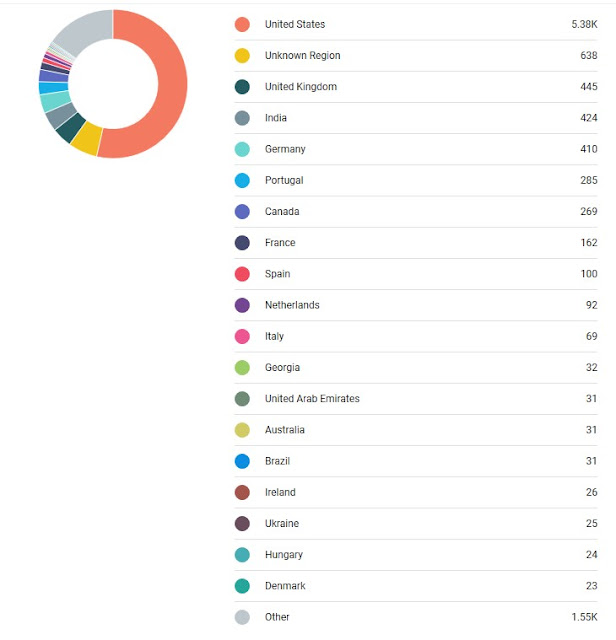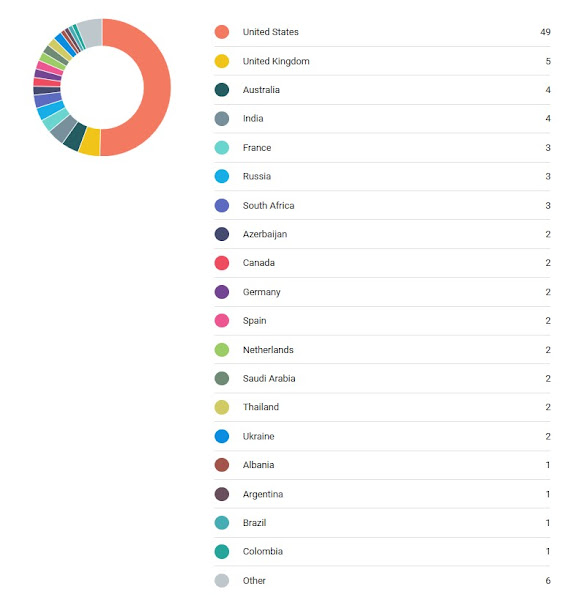Milestone: Hamlet's Bible exceeds 10,000 views from 84 countries

MILESTONE: I'm grateful to report that, on the morning of October 20, this blog, Hamlet's Bible , passed 10,000 views from a total of 84 different countries, over a period of about 20 months. Here's a screen shot of the blog's analytics, showing the number of view from the top 18 countries, also including views from "Unknown Region" and "Other": I'm guessing that "Unknown" is views from places where Blogger is unable to identify the country of origin, and "other" includes all those where the origin could be identified, but the number of views was under 23. LIST OF 84 COUNTRIES: Here is the list of the 84 countries from which the blog received views since March 1, 2019: Albania Algeria American Samoa Argentina Australia Azerbaijan Bangladesh Belgium Brazil Canada Cayman Islands Colombia Chile Costa Rica Cyprus Czechia Denmark Egypt Faroe Islands Finland France Georgia Germany Greece Guatemala Hong Kong ...




